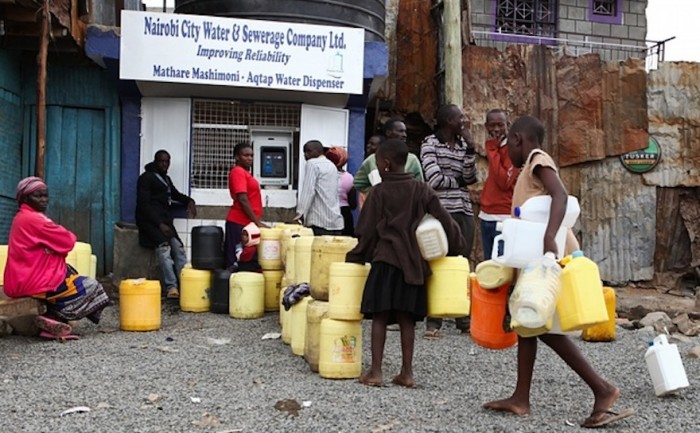
The Kenyan government has installed communal water ATMs to get clean and affordable water to people in Mathare, Nairobi’s second slum after Kibera. Safe drinking water in slums such as Mathare remains a challenge due to poor sanitation.
The water ATM unit is easy to install and connects to the public water network, allowing residents to fill containers with water for a subsidised price paid for with pre-paid smart cards – half a Kenyan shilling buys around 20 litres of water. Similar to an ATM, the cardholder swipes their prepaid card and instead of money, a stream of clean water is dispensed. The government is currently piloting the project with only four water ATMs installed and in operation.
Slum dwellers in Nairobi usually rely on entrepreneurs who charge an inflated half a US cent for 20 litres of fresh water. Alternative cheaper sources, however, are usually too polluted for consumption. For most slum dwellers, the prices are high as most are either unemployed or earn less than a dollar a day.
In Nairobi’s slums public services struggle to keep up with the rapid urbanisation and the rising population both of which contribute to Nairobi’s lack of housing and water and sanitation. In 1963, Nairobi’s population was roughly 300 000 and today the city is home to about 3 million residents.
The Kenyan government, in collaboration with Danish water engineering company Grundfos, plans to expand the project to other slum areas in the city.






